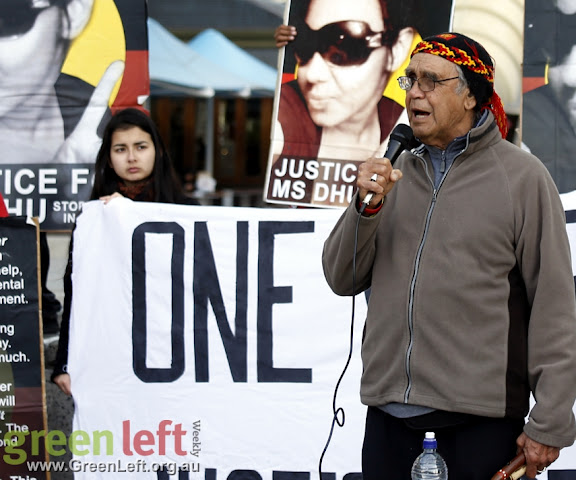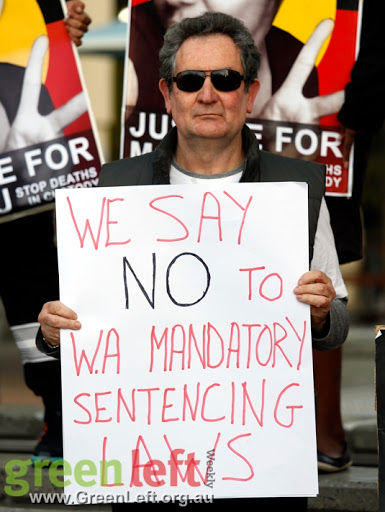 The anniversary of the death in custody of 22-year-old Aboriginal woman, known as Julieka Dhu, was marked around Australia on August 4.
The anniversary of the death in custody of 22-year-old Aboriginal woman, known as Julieka Dhu, was marked around Australia on August 4.
Dhu died while in police custody in Western AustraliaтАЩs Pilbara region for non-payment of fines that totalled about $1000.
About 120 people gathered in Perth while other events were held in Geraldton, Port Hedland, Melbourne, Sydney, Brisbane and Canberra.
The three demands raised at the rallies were: an end to imprisonment for the non-payment of fines; the establishment of a custody notification service; and an end to all mandatory sentencing laws.
In Perth, rally chairperson and Deaths in Custody Watch Committee spokesperson Marc Newhouse said that Dhu's was the 339th Aboriginal death in custody since the 1991 Royal Commission into Aboriginal Deaths in Custody.
He said there were also 339 recommendations of the Royal Commission that remain largely unimplemented. Implementation of just some of those recommendations would likely have saved Dhu's life.
"Now, [given more deaths in custody since Dhu's death], we have more Aboriginal deaths in custody than recommendations," Newhouse said. "That is absolutely appalling and a blight on this country."
Dhu's uncle, Bob Coomer, referred to the to take measures to reduce the numbers of Aboriginal people in custody. At the time, Barnett invited people to judge him on whether he succeeded in this goal.
"They haven't succeeded", Coomer told the rally. "There's been no help from no one [in government]."
He said the only support they had received had come from the community.
Ethan Blue, from the University of WA history department, drew parallels between black deaths in custody in Australia, police shootings of black people in the US and the mistreatment of refugees in Australia's offshore detention centres.






